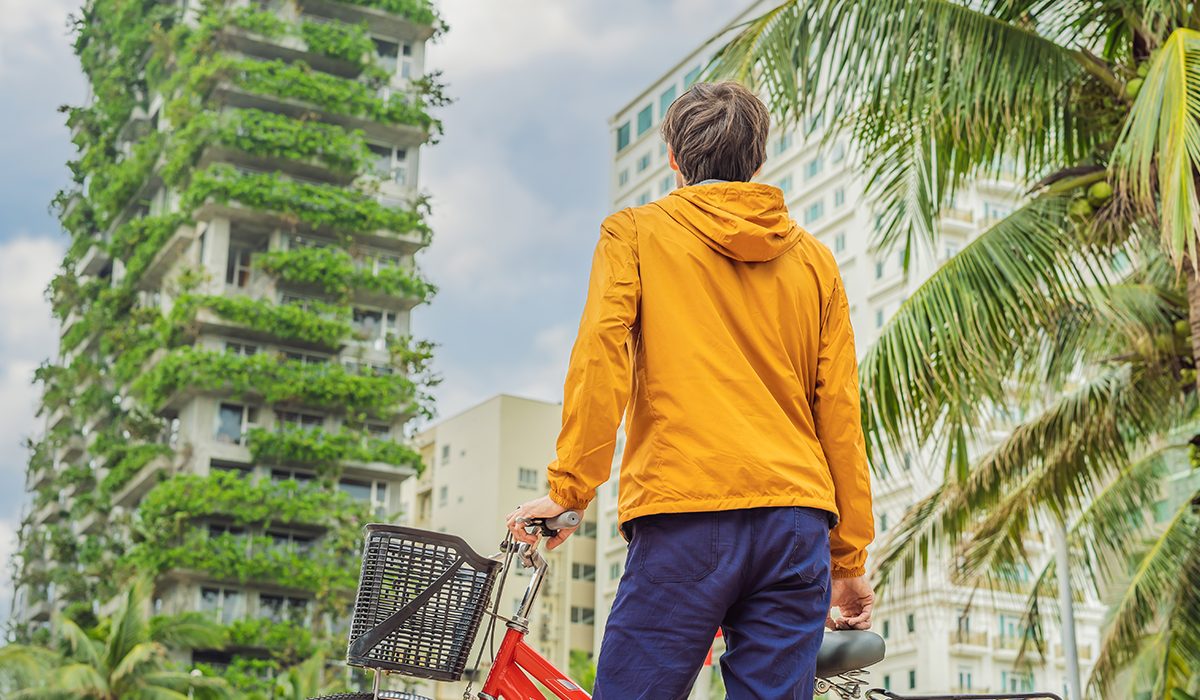In the heart of bustling cities, amidst the concrete jungle and the relentless pace of urban life, green spaces emerge as silent heroes. Beyond traditional parks, cities are embracing innovative green initiatives such as rooftops, wall gardens, and mini-urban forests.
These initiatives are not just a nod to aesthetics but a deep-rooted commitment to improving mental health, fostering community bonds, and making a significant ecological impact.
The Evolution of Urban Green Spaces
Gone are the days when urban greenery was synonymous only with parks. Today, innovative urban planning has led to the creation of green rooftops, wall gardens, and even mini urban forests within city landscapes. These spaces serve multiple purposes: they are not only recreational areas but also crucial in combating the urban heat island effect, improving air quality, and providing sanctuaries for urban wildlife.
Green Rooftops: Oases in the Sky
Green rooftops transform barren, unused spaces into vibrant ecosystems. They are not just pleasing to the eye but act as natural insulators, reducing the need for heating and cooling in buildings. This innovation significantly lowers energy consumption, aligning with sustainable urban living principles.
Wall Gardens: Art Meets Ecology
Wall gardens, or living walls, turn urban structures into vertical gardens, blending art with ecology. These living canvases contribute to biodiversity, purify the air, and enhance the mental well-being of city dwellers by bringing nature closer to home.
Mini Urban Forests: Biodiversity Hotspots
Mini urban forests, inspired by the Japanese concept of “Miyawaki,” create dense, biodiverse ecosystems that improve ecological balance. These forests not only increase green cover but also serve as vital habitats for urban fauna, contributing to the biodiversity of cities.
Beyond Aesthetics: The Multifaceted Benefits
Urban green spaces are instrumental in improving mental health and community well-being. They offer serene escapes from urban stress, promoting relaxation and physical activity. Additionally, these green areas are pivotal in community building, providing spaces for social interaction and communal activities.
A Sense of Community
Beyond their role as peaceful retreats, urban green spaces are also dynamic arenas for community engagement and social interaction. They serve as communal living rooms where people from diverse backgrounds come together, fostering a sense of belonging and community spirit. Whether through organized events, casual gatherings, or spontaneous interactions, these green areas encourage communal activities, strengthen social ties, and promote inclusivity. The shared experience of enjoying and caring for these spaces can unite individuals, creating a collective identity and a stronger, more resilient community fabric.
Better Health All Around
Urban green spaces are instrumental in promoting physical activity among city residents. Parks, green rooftops, and other green areas provide accessible venues for exercise, sports, and recreational activities. This not only helps in improving physical health but also enhances mental well-being by reducing symptoms of depression, anxiety, and stress. The presence of green spaces in urban areas is thus crucial in creating healthier, happier, and more cohesive communities.
The Role of Education in Sustainable Urban Development
As cities continue to grow, the role of education in promoting sustainable urban development becomes increasingly crucial. The Master’s in Engineering: Energy & Sustainable Cities Major at ESILV Engineering School exemplifies this approach. The program delves into energy issues and sustainable development, based on the scientific cornerstones of physics and energy management, digital technologies, and modeling cities and buildings. This course is specifically designed for those looking to make a tangible impact on sustainable development projects. By focusing on the energy transition and leveraging digital technology for sustainability, students are prepared for ethical careers aimed at creating more sustainable societies.
Through these efforts, we not only enhance the quality of urban life but also ensure the health of our planet for generations to come.







